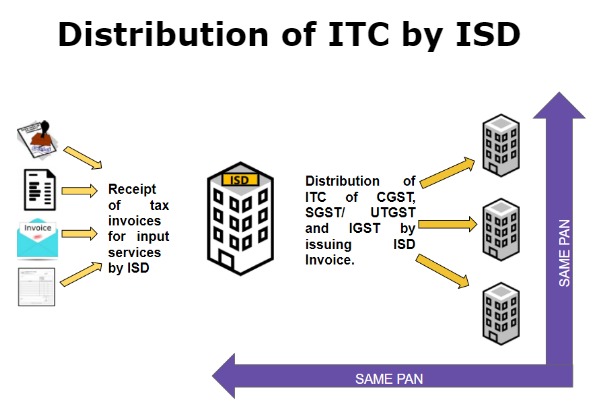The petitioner has prayed for the following relief(s):-
(i) For issuance of writ in the nature of certiorari quashing the order dated 23.06.2015 passed by the Commissioner Commercial Taxes, Bihar, Patna
(Respondent No. 2) in exercise of power under Section 74 of the Bihar Value Added Tax Act, 2005 (hereinafter referred to as VAT Act, 2005) by
which he has upheld the order of reassessment dated 27.10.2014 passed by the Deputy Commissioner of Commercial Taxes, North Circle, Patna
under Section 33 read with Section 8 of the Entry of Goods into local Areas for Consumption use or sale therein Act, 1993 (hereinafter referred to as
Entry Tax Act, 1993) for period 2010-11 and also quashing of the demand notice No.2405 dated 27.10.2014 by which the petitioner has been directed
to make payment of balance amount of Rs.266785/- for period in question being inconsistent with the object and provision of Entry Tax Act. The
petitioner prays further to granting set off or refund amount of Rs. 163071.60 paid more than prescribed rate of VAT.
(ii)For holding and declaring S.O. 95, dated 31st July, 2008 issued under Section 3(1) of Entry Tax Act, 1993 (Bihar Act No. 16 of 1993) fixing the
rate of Entry Tax by amending the Schedule to the Parent Act, 1993 on the goods specified in Entry 17 @ 8% being higher than the rate of VAT @
4% on such electrical goods specified in Entry 67 of the Schedule-III of the VAT Act, 2005 be struck down for being higher than the rate prescribed
under VAT.
(iii) For holding and declaring that vide amendment in Section 3 of the Entry Tax by Bihar Act 19 of 2006 provided with an internal balancing
mechanism that saved it from being discriminatory against goods imported from other States for reduction of tax liability to the extent of tax paid under
Entry Tax Act in case the importer of schedule goods incurred tax liability to pay tax @ rate specified u/s 14 of the VAT Act. However, the rate
prescribed on the goods specified in Entry 17 @ 8% being higher than the rate prescribed under Section 14 of VAT Act, 2005 on such electrical
goods specified in Entry 67 of Schedule -III of the VAT Act makes it inconsistent with Sub-Section 2 of Section 3 of the Entry Tax Act, 1993 and
Section 14 of VAT Act and discriminatory as well as against the law laid down by this Hon’ble Court.
(iv) For granting any other relief/reliefs for which the petitioner is entitled in facts and circumstances of present case.â€
The present petition was tagged along with the other cases of similar nature and listed for hearing before different Benches from time to time.
In effect, the petitioner challenged the Constitutional validity of different provisions of the Bihar Tax on Entry of Goods into Local Area for
Consumption, Use or Sale Therein Act, 1993, as amended from time to time.
It is a matter of record that Hon’ble the Apex Court vide judgment dated 14th of July, 2006 passed in Civil Appeal No. 3453 of 2002, titled as M/s.
JINDAL STAINLESS Ltd. & ANR. Vs. STATE OF HARYANA AND ORS. had permitted the parties, before the Supreme Court, to place within
two months additional material in the concerned writ petitions.
In most of the cases, such an additional material was not placed by the parties, perhaps for the reason that the issue decided in terms of the said
judgment was pending consideration before a Larger Bench of Hon’ble the Apex Court.
Subsequently, a Constitution Bench (Nine Judges) of the Hon’ble Apex Court in the case of JINDAL STAINLESS LIMITED & ANOTHER
VS. STATE OF HARYANA & OTHERS, reported in (2017) 12 SCC 1, after examining the correctness of the decision rendered in the case of
Jindal Stainless Ltd. (2) and another Vs. State of Haryana and others, reported in (2006) 7 SCC 241 has observed as under:
“1159. By majority the Court answers the reference in the following terms:
1159.1. Taxes simpliciter are not within the contemplation of Part XIII of the Constitution of India. The word “free†used in Article 301 does not
mean “free from taxationâ€.
1159.2. Only such taxes as are discriminatory in nature are prohibited by Article 304(a). It follows that levy of a non-discriminatory tax would not
constitute an infraction of Article 301.
1159.3. Clauses (a) and (b) of Article 304 have to be read disjunctively.
1159.4. A levy that violates Article 304(a) cannot be saved even if the procedure under Article 304(b) or the proviso thereunder is satisfied.
1159.5. The Compensatory Tax Theory evolved in Automobile Transport case and subsequently modified in Jindal’s case has no juristic basis and
is therefore rejected.
1159.6. The decisions of this Court in Atiabari, Automobile Transport and Jindal cases and all other judgments that follow these pronouncements are
to the extent of such reliance overruled.
1159.7. A tax on entry of goods into a local area for use, sale or consumption therein is permissible although similar goods are not produced within the
taxing State.
1159.8. Article 304 (a) frowns upon discrimination (of a hostile nature in the protectionist sense) and not on mere differentiation. Therefore, incentives,
set- offs etc. granted to a specified class of dealers for a limited period of time in a non-hostile fashion with a view to developing economically
backward areas would not violate Article 304(a). The question whether the levies in the present case indeed satisfy this test is left to be determined by
the regular Benches hearing the matters.
1160. States are well within their right to design their fiscal legislations to ensure that the tax burden on goods imported from other States and goods
produced within the State fall equally. Such measures if taken would not contravene Article 304(a) of the Constitution. The question whether the
levies in the present case indeed satisfy this test is left to be determined by the regular Benches hearing the matters.
1161. The questions whether the entire State can be notified as a local area and whether entry tax can be levied on goods entering the landmass of
India from another country are left open to be determined in appropriate proceedings.â€
Perhaps, the only surviving issue requiring consideration by this Court is the one pointed out in Paragraph 1161, reproduced supra.
However, after the matter was heard for some time, we find the record to be totally silent on facts or grounds with regard thereto. No doubt, the issue
is purely legal. But even the relevant provisions of the Statute claimed to be ultra vires are not on record and the reason is not far to seek for the
petition was filed way back in the year 2016 and the Legislation was amended/enforced subsequently. That apart, even during the course of hearing
we found absolute incoherence with regard thereto.
As such, we are of the considered view that each one of the petitioners file a fresh petition placing on record not only the specific legislation or part
thereof, Constitutional validity whereof they wish to challenge, as also specify the grounds, in addition to the one reproduced supra.
This they are permitted to do so within a period of eight weeks on the same and subsequent cause of action. As and when such petition is filed, the
same shall be considered for hearing on priority basis.
Learned counsel for the petitioner invites our attention to the interim order dated 09.03.2016 and prays that the same to be made absolute, in finality.
We are not inclined to allow such a prayer. However, since we permit the petitioner to file an exhaustive petition on the same and subsequent cause
of action, the such interim order(s) would continue for a further period of eight weeks, within which, a fresh petition be filed. We clarify that if such a
petition is not filed within eight weeks and mentioned for early listing, the interim order(s) shall automatically stand vacated, without any further
reference to this Court.
Petition stands disposed of in the aforesaid terms. Interlocutory Application, if any, shall stand disposed of.

